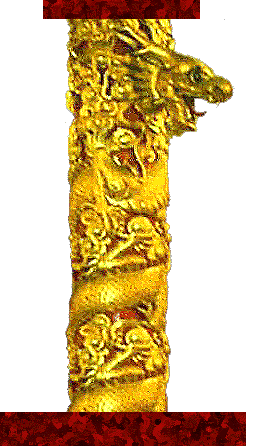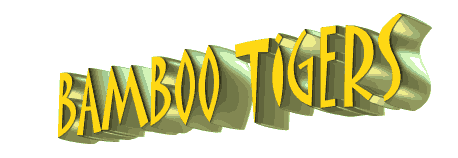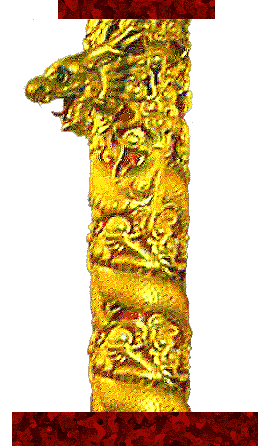| |
There came a night when they all got together at Peter Cheung's new apartment in Daly City. Peter had rented it a couple of months before Mark knew about it. They sat around and talked. Sai Ying Lee was there, and Tom, Dana, Peter Cheung, Melvin and several more.
Someone had an idea, although it was nothing new. Why not drive into Chinatown and hunt W.C.'s? Find them, and shoot them. The prospect of a spontaneous kill enlivened them all.
The Daly City apartment lay so far from where most of them lived, that they had plenty of cars on hand. Mark left his behind because it was too well known in Chinatown, and drove Sai's black Camaro. Everybody went. Sai drove his second auto, a Monte Carlo. They went in a three- or four-car convoy.
They almost got to Chinatown. Suddenly, in the middle of the freeway, the headlights went out in the Camaro. Mark didn't panic. he just drove off at the next exit. The others followed. Having reached the street, they discovered no one had a fuse. They couldn't fix it. So they piled into the other cars and went back to Peter's apartment.
They agreed it was just "a bad luck night." Tom mentioned "doing it some other time."
In the ambulance on the way to Mission Emergency in September of 1977, Mark's wandering thoughts gathered those words into focus: "a bad luck night." Now he had finally reached a night of ultimate bad luck, a just reward, he suddenly feared, for the mindless pursuit of bosau. Had those comings and goings in the universe of the gangs been worth facing death? Had he been worse than his friends?
He had always tried to be a "good" Joe Boy. As most of them did, he often carried a gun. He committed a number of crimes--stealing cars, among other things. He had considered himself true to his gang brothers. With them, he had wanted to take over Chinatown, which meant, as Tom had once told him, to "go down there and just hang around," to make illegal money from "protecting the gambling joints and stuff like that." The way to take over was "to fight, and kick the Wah Ching out, to go and shoot them."
There were about a hundred Joe Boys when Mark became a member. They were a mixture of A.B.C.'s and F.O.B.'s. They all got along, but when it came time to pal around, A.B.C.'s stuck together, and the same was true of the F.O.B.'s. Associating with each other in a general way was acceptable, but for going to movies, just being together, and pulling "jobs" together, members of small cells such as the Tom Yu faction had to be basically the same age, of similar family background, of like taste in everything, and they had to be Cantonese-speaking immigrants from Hong Kong. Anyone with those qualifications was a man to be trusted with one's life.
At any moment, they could find themselves on a firing line, as when Mark had attended a multi-racial dance at Pauley Ballroom on the campus at the University of California in Berkeley. He went with 20 or 30 guys, including Tom, Dana, Peter Cheung and Sai. Somebody pointed out a large group of Suey Sings at the dance, a gang that had moved out of San Francisco to Oakland.
Nothing happened then, but, later, when the dance broke up, Mark was a passenger in one of the cars going home. As they approached the westbound turn-off for the Bay Bridge, a car full of Suey Sings, headed for Oakland to the south, pulled alongside Sai's car for a few seconds and opened fire. Tom, and others, returned the shots. Nobody got hurt, but all the way over the bridge the kids grumbled the obscenities and threats, unheard by the long-gone enemy, that comprised their daily litany. The enemy was undoubtedly doing the same.
Somewhere along the way, Mark had begun to grow tired of this. He had, in his way, seen the writing on the wall, and it pointed out to him the waste of time, the waste of energy, the waste of a young man's life that membership in the gangs decreed. He decided to do something about it.
He acquired a girlfriend and decided to get away from the gang, which he realized was not an easy thing to do if he stayed in San Francisco. So he found a job at a Mobil gas station in San Jose and planned not to return to Washington High to begin his senior year. Mouse Lee had the same idea and enrolled at school in San Jose. Mouse lived with his brothers down there and came into town only once a week, usually on Sundays. Mark commuted every day and kept his room in his grandmother's apartment.
Before he made the break, his Joe Boy companions came by nearly every night, and sometimes slept over, but they soon got the message that he had other interests now--his girlfriend, his job, a new life. They began, more and more, to leave him alone, but he was still considered by others to be one of them.
Mark read in the papers about the Ping Yuen shoot-out on the 4th of July 1977. He had known Felix Huey, the Joe Boy who was killed, but Felix had been an A.B.C. and, therefore, not close to anyone in Tom Yu's group. He also heard that two who were his close friends, Melvin Yu and Jeung Him Tom, had been wounded in the fray.
Another gangster, Dean Tom, was wounded, too, despite having worn a bulletproof vest.
One night in mid-July, Mark was cooking dinner in the apartment on 30th Avenue. A group of his old buddies came to the front door, and his grandmother let them in. When he went to his room, he found them cleaning some shotguns they had brought. There was ammunition, too. He knew without asking that they intended to stash them with him. They all talked for awhile--Tom, Dana, Melvin, Peter Cheung, Sai and a couple more--and played with the guns, cocking them and sighting at various things around the room.
Mark went out with them, but the guns were left behind. Sometime later he talked privately with Tom and said he didn't want the guns around his grandmother's place. Tom made no reply. That was typical of him, and Mark accepted his silence as notice that the guns would remain there.
Busy with his work, his girlfriend, and traveling back and forth to San Jose, Mark read about the Golden Dragon in the newspapers, as he had about the Ping Yuen shooting. He was certain Tom's group had done it.
He said to himself when he read it: If I hadn't changed my life, I would have been with them that night.
But he hadn't been there, nor had Mouse. Why should they have to pay the price for the others? He knew why they had been shot, and suspected who gunned him down and killed Mouse Lee--the Wah Ching or the Hop Sing Boys, for the sake of bosau.
The W.C.'s and the Hop Sing Boys had been the intended victims at the Golden Dragon. That none of them were wounded or killed made no difference; that innocents had died in their stead made no difference, either. Vengeance had to be taken for the insult to their sense of face.
Never for a moment had the W.C.'s or the Hop Sing Boys doubted who committed the Golden Dragon massacre, and the better informed of them suspected precisely which of the Joe Boys factions it had been: "the Tom Yu bunch; they're crazy, you know." Unlike the cops, they had no need to waste time gathering proof.
The best intelligence gleaned in the Mouse Lee and Mark Chan shooting pointed to out-of-town hit men from Seattle, imported to do the job on the least wary of the Joe Boys to be found. The targeted bodies were of little importance. It was the message that counted: Joe Boys dared it; Joe Boys must die for it.
It was war. They all knew it. Like the rest of them, Mark had accepted that fact, but now, as he thought he lay dying, he wondered WHY. For money? For power? For the honor of the gangs? For the glory of their leaders?
It was certainly not in the interests of Mark Chan and Mouse Lee on this night, nor was it in the interests of the five dead and 11 wounded on the night of the Golden Dragon. Nothing the gangs offered could match the worth of these lives or compensate for the scars.
"The gangs oughta disappear," he mumbled aloud. "It would be better for everybody."
He was right. The gangs were engaged in a bitter business.
| |
|









